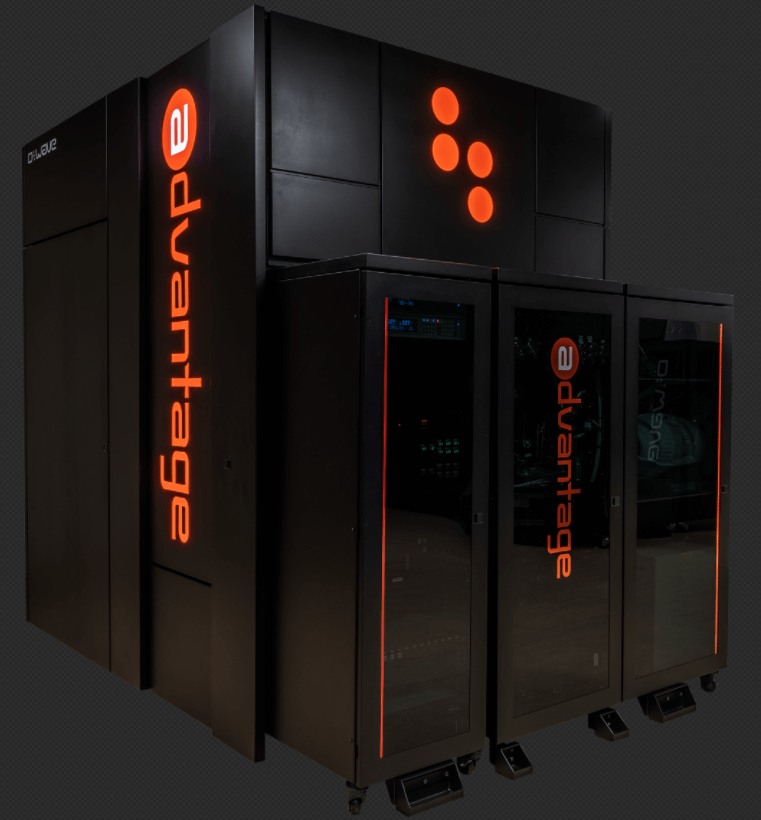Who Was the First Quantum Company? A Deep Dive [2025]
2025.04.03 · Blog
In the rapidly evolving field of quantum computing, one company stands as a pioneering force—ushering in a new era of quantum technology that promises to change industries worldwide.
But which quantum company can lay claim to being the very first to take on the challenge of quantum computing? Let's explore the origins of the first quantum company and how its innovations paved the way for today's quantum revolution.
A Glimpse into Quantum Computing's Roots
The journey of quantum computing began with the realization that classical computers struggled with solving highly complex problems. In the 1980s, physicist Richard Feynman proposed using quantum mechanics for computation. He introduced a basic model of a quantum computer and argued that only quantum computers could efficiently simulate quantum systems, laying the theoretical groundwork for the field.
Fast forward to the early 2000s, and the race to build practical quantum computers began in earnest.
Among the pioneers in this effort were D-Wave Systems, which focused on quantum annealing, and IBM, which pursued gate-based quantum computing.
D-Wave: The First Quantum Company to Commercialize Quantum Computing
Strictly speaking, D-Wave was the first quantum company to commercialize quantum computing technology.
In 2011, D-Wave Systems made history by selling the world's first commercial quantum computer, the D-Wave One, to Lockheed Martin.
Brief Introduction to D-Wave
Founded in 1999 in Vancouver, D-Wave Systems became the world's first quantum company dedicated to building and commercializing quantum computers.
Unlike other pioneers that focused on gate-based quantum computing, D-Wave took a different approach: quantum annealing. This method is particularly well-suited for solving optimization problems, making D-Wave's quantum systems valuable for industries such as logistics, finance, and artificial intelligence.

Key Achievements of D-Wave
1. D-Wave One (2011): The First Commercial Quantum Computer
In 2011, D-Wave launched the D-Wave One (128-qubit), the first commercially available quantum computer, marking a significant milestone in the industry.
2. D-Wave 2000Q (2017)
With 2,000 qubits, this system demonstrated how quantum annealing could be used to solve complex combinatorial problems.
3. D-Wave The Advantage™ Quantum Computer (2022)
The D-Wave Advantage Quantum Computer is the world's largest annealing quantum computer, featuring 5,000+ qubits and 15-way qubit connectivity, significantly enhancing computational power and further pushing the boundaries of quantum optimization.
With cloud access via D-Wave Leap, businesses and researchers can harness quantum computing for practical applications today.
4. D-Wave Advantage2™ Prototype (2024)
The D-Wave Advantage2™ Prototype is D-Wave's next-generation quantum annealer, featuring over 1,200 qubits and 20-way qubit connectivity, a significant leap in problem-solving capability.
Benchmark tests indicate a 20x faster time-to-solution for certain hard optimization problems compared to previous systems. Accessible via D-Wave's Leap™ quantum cloud service, this prototype allows businesses and researchers to tackle larger and more intricate problems, paving the way for practical quantum computing applications.
5. Advancing Quantum Cloud Computing
D-Wave introduced Leap, a cloud-based quantum computing platform, allowing businesses and researchers to access its quantum processors remotely.
Although quantum annealing differs from universal quantum computing, D-Wave was the first quantum company to make quantum technology commercially accessible to industries. Its focus on practical optimization applications has helped companies explore real-world quantum computing use cases.
IBM: The First Quantum Company to Bridge Quantum Theory and Practical Computing
If we consider companies that have pioneered quantum computing research and development, IBM is widely recognized as the first quantum company in the world.
IBM has been working on quantum computing since the 1980s. In 1981, at the First Conference on the Physics of Computation, hosted by IBM and MIT, Richard Feynman introduced the concept of quantum computing, and IBM scientists have been at the forefront of this field ever since.
Brief Introduction to IBM
IBM has been recognized as a global leader in quantum computing, pioneering advancements in quantum research, cloud-based quantum access, and commercial quantum systems.
From launching the first quantum computing cloud platform to developing industry-leading quantum processors, the open-source Qiskit framework, and the world's largest quantum ecosystem, IBM continues to drive quantum innovation and real-world applications across finance, AI, and materials science. By making quantum computing more powerful, scalable, and accessible than ever before, IBM is shaping the future of quantum computing.

Key Achievements of IBM
1. IBM Quantum System One (2019)
IBM introduced the IBM Quantum System One in 2019, the world's first integrated quantum computing system designed for commercial use. This 20-qubit system marked a significant step toward making quantum computers viable for business applications.
2. Condor Quantum Processor (2023)
IBM unveiled Condor, a 1,121-qubit superconducting quantum processor. Condor is the first quantum processor to surpass 1,000 qubits. It utilizes IBM's heavy-hexagonal qubit layout and cross-resonance gate technology, enhancing qubit connectivity and computational performance. This milestone represents a major leap in scaling quantum computing hardware, positioning IBM at the forefront of the race to develop larger and more powerful quantum computers.
3. IBM Quantum Platform
Launched in 2016, the IBM Quantum Platform (previously known as IBM Quantum Experience) was the earliest publicly accessible quantum cloud platform. In fact, it is considered the first mainstream quantum cloud computing service, allowing users to access superconducting quantum computers via the cloud and program them using the Qiskit framework—a major step toward the democratization of quantum computing.
4. Largest Quantum Ecosystem
IBM leads the world's most extensive quantum computing ecosystem through the IBM Quantum Network, connecting universities, research institutions, and enterprises to collaborate on real-world quantum applications.
For example, IBM collaborates with JPMorgan Chase to explore quantum computing's potential in financial modeling, particularly in areas like portfolio optimization, risk analysis, and option pricing. By leveraging IBM's quantum processors and algorithms, JPMorgan aims to solve complex financial problems more efficiently than classical methods allow.
IBM's Future Quantum Computing Roadmap:
IBM was the first quantum company to publicly release a detailed quantum computing roadmap in 2020, outlining its plans for scaling up quantum processors. This roadmap led to key milestones, such as the release of the Eagle (127-qubit) processor in 2021, Osprey (433-qubit) processor in 2022.
Looking ahead, IBM has ambitious plans for the future of quantum computing:
Kookaburra Processor (2025): In 2025, IBM plans to unveil the Kookaburra processor, which will feature 1,386 qubits in a multi-chip configuration. This processor will introduce quantum communication links, enabling multiple chips to work together seamlessly. IBM aims to connect three Kookaburra chips, forming a 4,158-qubit quantum system.
Quantum-Centric Supercomputer (2033): By 2033, IBM envisions the development of a quantum-centric supercomputer with 100,000 qubits.
You May Be Interested: The First Quantum Computer: Everything You Need to Know
Other Early Players in Quantum Computing
Other early contributors to quantum technology include Google, SpinQ, Microsoft, Amazon, and Intel. They now lead the charge in both quantum computing hardware and software solutions.
The contributions of these early quantum companies set the stage for the explosion of innovation that followed.
The race to build practical, scalable quantum systems is on!
You May Be Interested: 23 Leading Quantum Computing Companies Worldwide [2025 List]
Conclusion: The Future of Quantum Computing
As the industry matures, we can expect quantum computing to become more accessible, impactful, and widespread. The first quantum companies paved the way for today's advancements, and their legacy will continue to influence the future of quantum computing. Keep an eye on the innovations emerging from these pioneering quantum computing companies!
Featured Content






